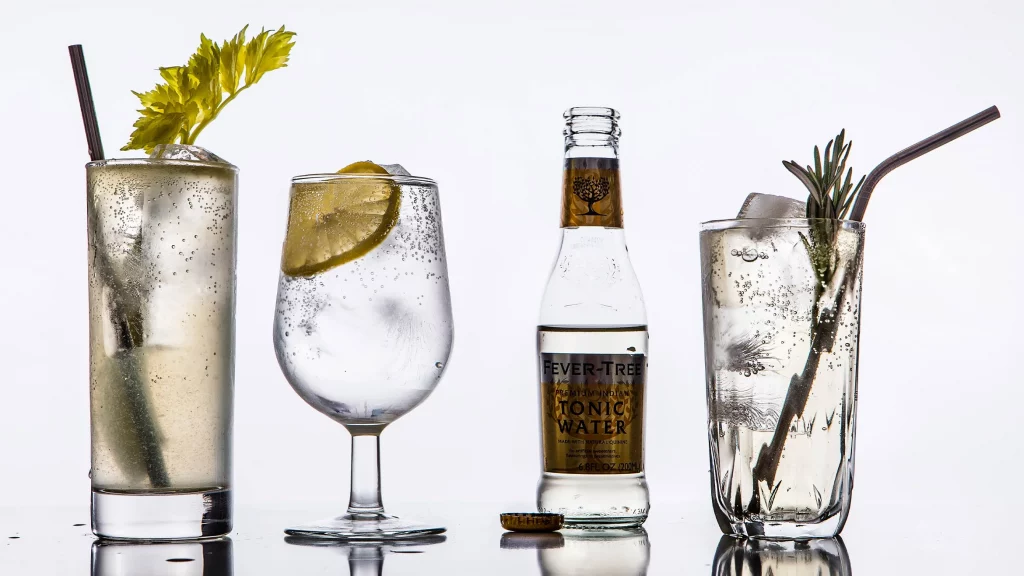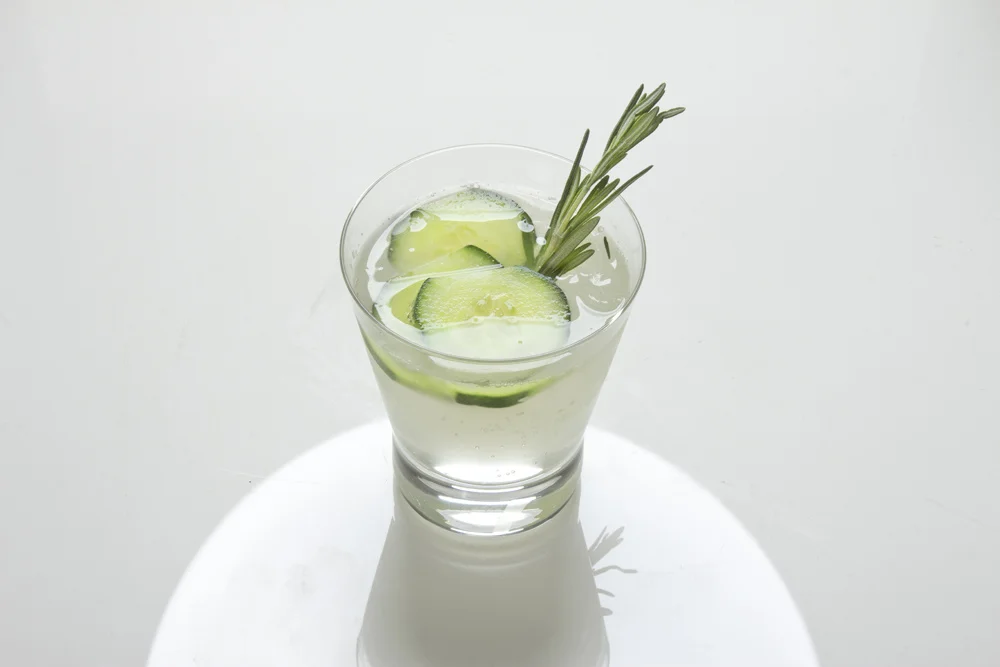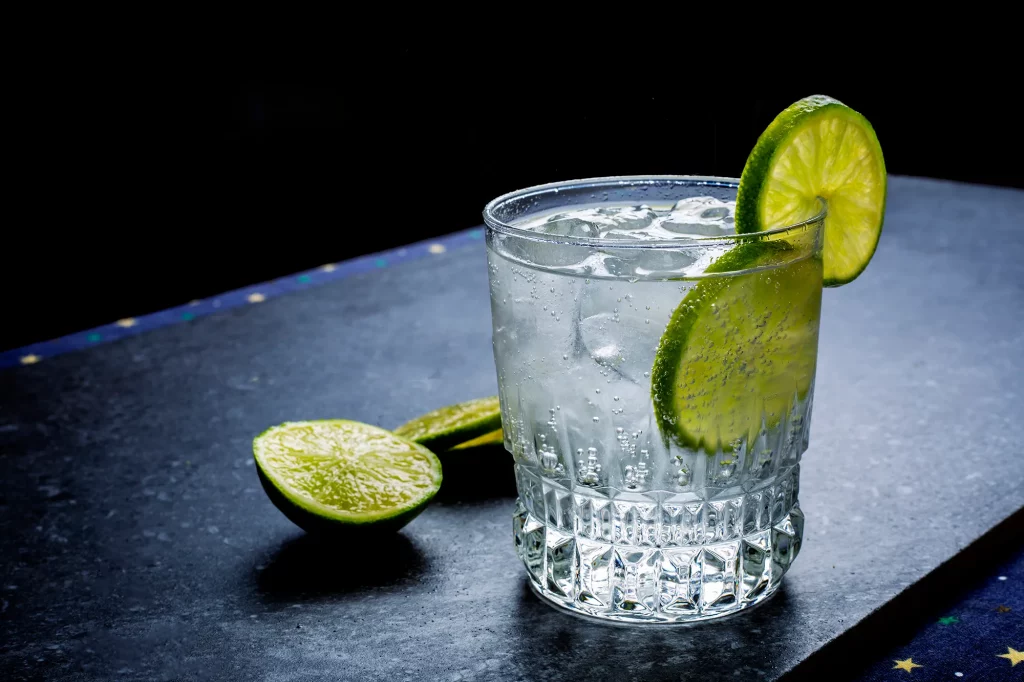Is ‘Gin and Tonic’ one of your favorite cocktails at the bar? If yes, then I am sure you have heard about tonic water. The ‘bitter tonic’ is one of the hyped beverages, so much so that people drink it as a standalone beverage. But have you ever wondered why it is so hyped?

Research showed that the Global Tonic Water industry was valued at $ 676.6 million in 2020, and this shows the fandom of tonic water. Tonic water (the ‘tonic’ in ‘Gin and Tonic’) is a carbonated beverage infused with quinine and sugar.
Many brands use high-fructose corn syrup instead of sugar, and many even use flavorings. But what even exactly is tonic water, and what the hell is even quinine. Are there any benefits to it, and what are the side effects that no one talks about?
Today, we are going to dive into the pool of tonic water. If your interest is piqued and you want to know more about tonic water, its benefits, and its side effects, you are reading the right article! Let’s start with the basics.
What's In The Post
What Is Tonic Water?

Tonic water is a carbonated beverage that has a bitter finish. It is one of the most used drinks for cocktails and other coffee beverage preparation. It has a combination of quinine, sugar or high fructose corn syrup, and carbonated water (I mentioned this above too).
Now, sugar and carbonated water are fine, but you must be wondering, what is this strange thing named quinine? Quinine is actually the bitter compound that gives your drink its signature bitter finish.
Let me tell you more about quinine. It is a compound synthesized from the bark of cinchona trees and was used as a medicine to fight Malaria in the countries where these trees are grown.
These trees usually grow in tropical and subtropical regions like South America, the Caribbean, Central America, parts of Africa, etc. (here’s your cinchona geography lesson).
It is very different from other cocktail mixers like sparkling water or club soda! The quinine’s bitter taste makes it an excellent ingredient for tonic water, and it goes well with the drinks too.
Recently, the tonic water industry has picked up. There are many brands in the race to sell tonic water. It has risen to such a level that there are boutique brands producing tonic water in smaller batches, with a different USP.
A study from 2015 showed that tonic water sales are majorly distributed amongst the two variants – regular tonic water, which takes up about 74.2% of sales, and diet tonic water, with 17.6% sales. So, if you want to try tonic water, you have two options.
Strangelove tonic water is one of the favorites in Australia. But how did this fan-favorite drink and gin-diluter come into being? Let’s find out!
The History of Tonic Water
Like fables? Well, here’s one. This is a fabled story that many tonic water enthusiasts love to cherish forever! According to the myths, an Indian had lost his way around the Andean jungle, and he had a high fever.
When he found a pond, he drank the water, and he found it bitter. This made him realize that he had poisoned himself as Cinchona trees surrounded the pool.
To his utter shock, he found that his fever had subsided overnight. That is when he realized the medicinal value of the bark of the Cinchona tree.
This led him to introduce Cinchona bark extracts as a cure for fever and later for diseases like Malaria. The bark was mixed with water, and that is how the first ‘quinine infused water’ or modern-day tonic water came into existence.
Now that the history of tonic water is completely clear to us let us look at the benefits of tonic water.
Benefits of Tonic Water

So let’s see and discuss some of the benefits of tonic water. This bitter tonic has some benefits that come from the quinine present in it.
1. Quinine Is A Cure For Malaria
The quinine in the tonic water has been an active combatant against the fight for Malaria. Many countries still use quinine to treat Malaria.
Time for a science lesson. Malaria is usually caused by parasites called Plasmodium vivax and Plasmodium malaria. These are carried by the anopheles mosquito. Quinine is known to kill the ability of reproduction for these parasites!
But tonic water doesn’t contain a high dose of quinine at present. The amount of quinine present in tonic water isn’t sufficient to fight Malaria.
2. Tonic Water Can Also Act As An Antipyretic
Like the fabled story, it was seen that tonic water with rich quinine content has reduced fever in people. It also acts as a partial anti-inflammatory substance.
If it is coupled with acetaminophen, it can bring down fever rapidly! This one property makes it one of the most effective medicines for cerebral Malaria!
3. It Also Provides Relief To Restless Leg Syndrome
Do you have leg cramps at night? If yes, I am sure you are aware of the pain and struggle. According to studies, if you have quinine in the tonic water in controlled dosages, it can relieve the cramps.
However, the effect may be minimal. Still, it is better to consult a doctor, as quinine toxicity is a thing!
4. It Can Also Help With Your Diet For Weight Loss
In a controlled nature, it was seen that tonic water helps control the diet if you are on a diet. It allows you to maintain your diet and keep you full for long periods. It also helps in weight loss, and since it is mostly water, it also keeps you hydrated.
Side Effects of Tonic Water

Well, we talked about some of the less discovered and less talked about the benefits of tonic water. Now, it’s time to discuss some of its side effects.
1. It Might Cause Nausea
Tonic water generally has low quantities of quinine. But if you consume excess quinine via tonic water, it is highly likely that you might experience nausea. These symptoms can also get severe and lead to stomach cramps, vomiting, and diarrhea.
2. It Can Lead To Anxiety and Restlessness
If you consume an excess of tonic water, the quinine in it might lead to anxiety and restlessness. You might experience ringing in the ears along with nervousness and confusion. So, maybe tone the tonic down.
3. It Can Lead To Weight Gain
I know I said that tonic water suppresses your appetite and makes you lose weight. But you shouldn’t forget that tonic water, at the end of the day, is a carbonated beverage with lots of added sugar.
To put it simply, it is a lot of calories to take in just to suppress your appetite. It might end up doing more harm than good and make you gain weight. Also, excess of everything is bad.
4. It Has Some Severe Side Effects
The above-mentioned side effects are the commonly occurring ones. But excessive consumption of quinine through tonic water has some excessive side effects as well. Some of them are bleeding problems, kidney damage, and a severe allergic reaction.
Even though these are rarely occurring, it wouldn’t hurt you to drink your tonic water in mediation. I mean, just hydrate with the OG H2O instead of this compound one.
Final Thoughts!
So, I have put all my cards on the table. This was a thesis on tonic water along with its history, pros, and cons. I hope you are leaving with a little more knowledge than you came with.
Tell me in the comments how much this article intrigued you. I’ll see you next time with some more information. Until then, take care and enjoy your tonic water in moderation. Stay hydrated!

Thanks buddy